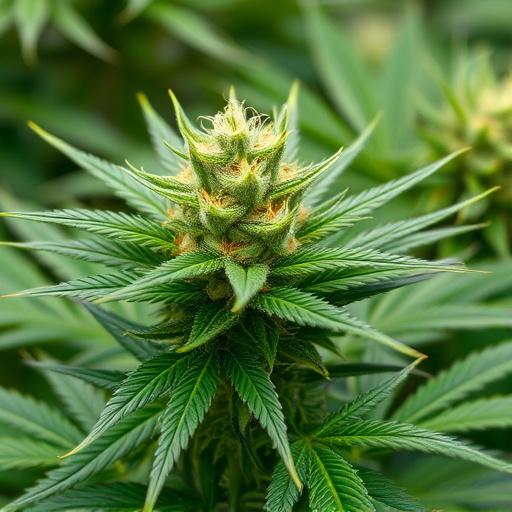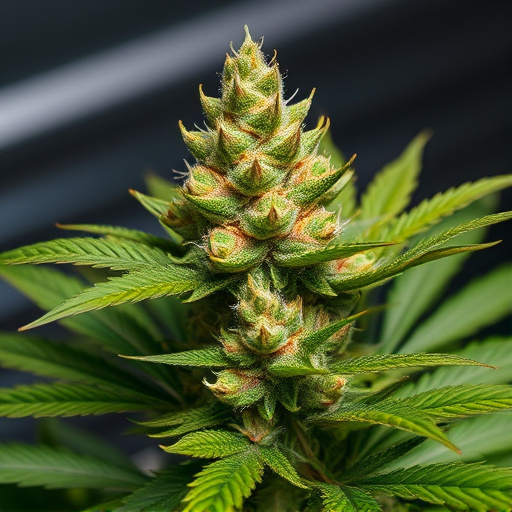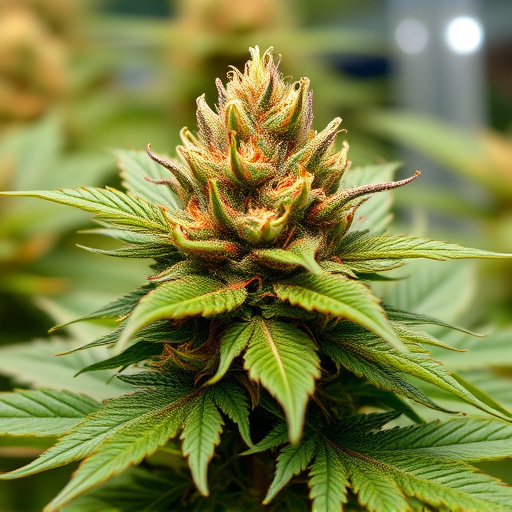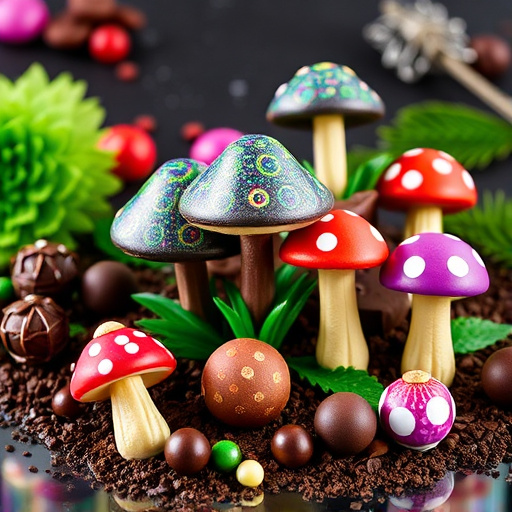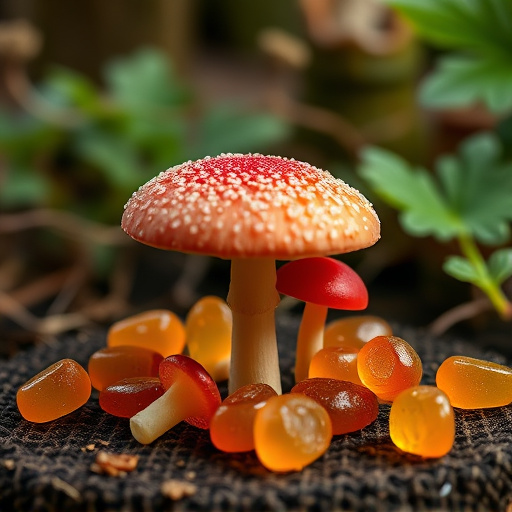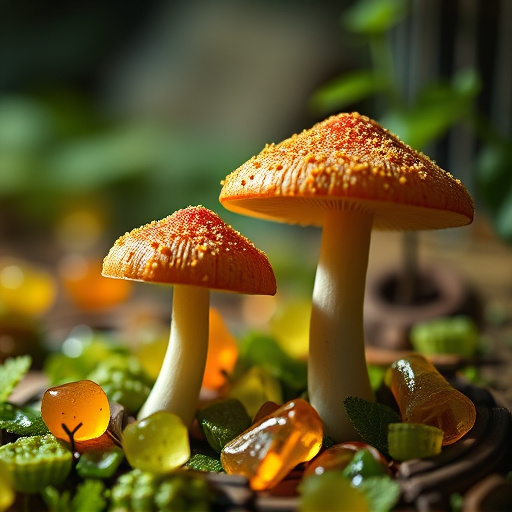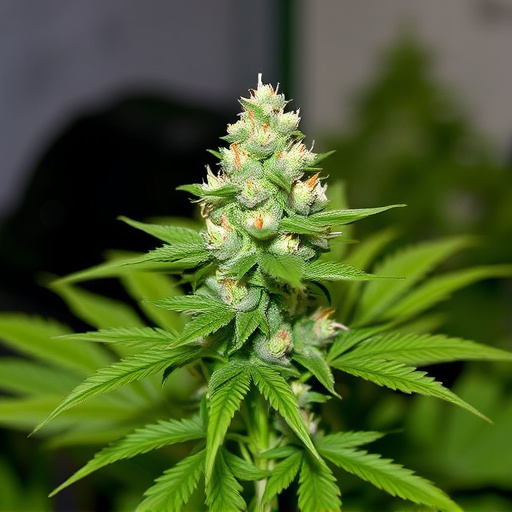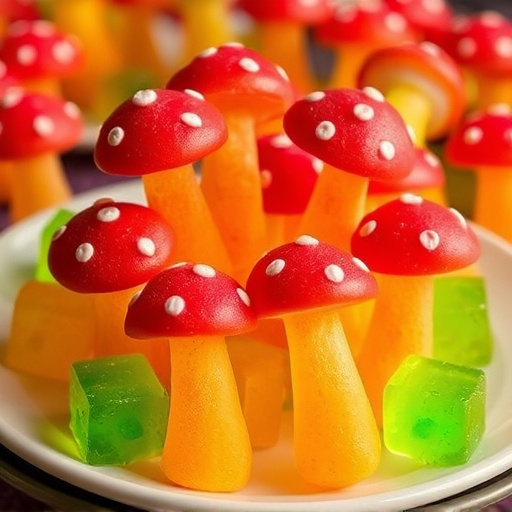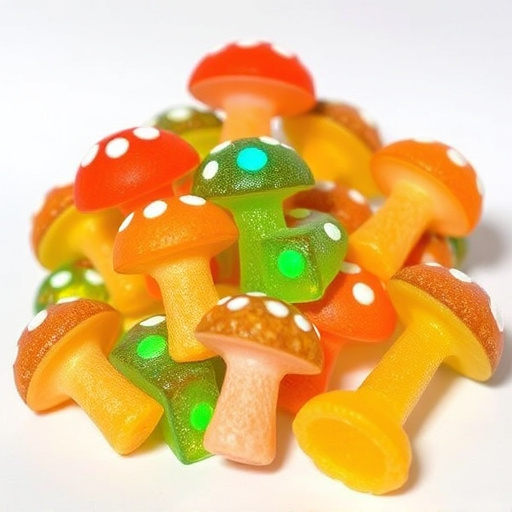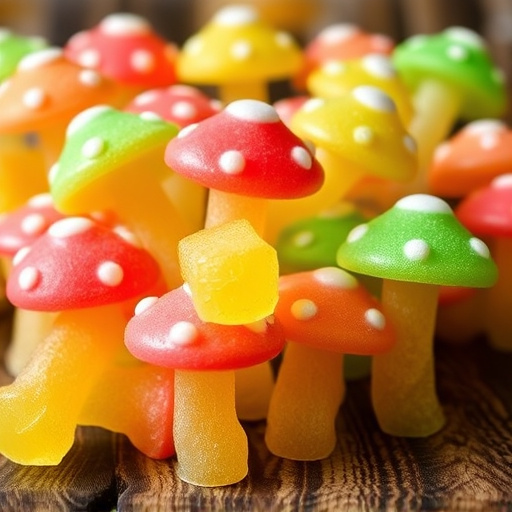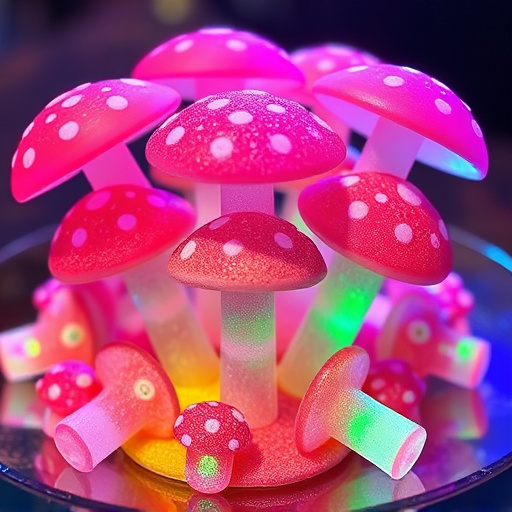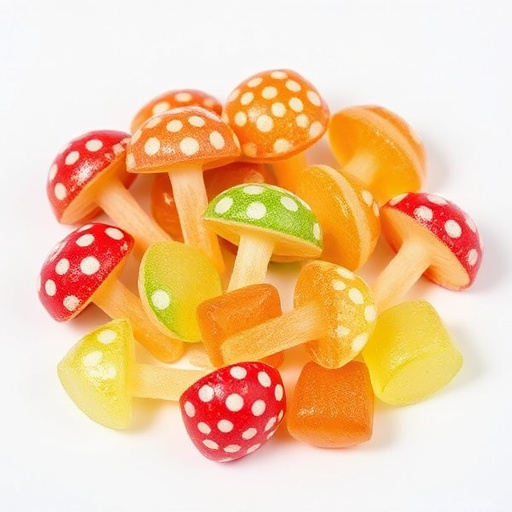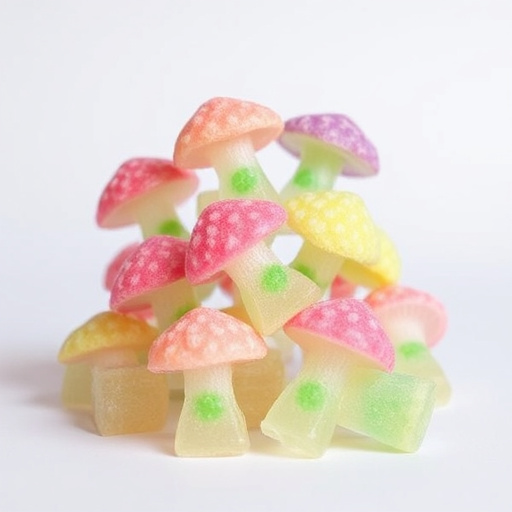Unveiling the science behind magic mushroom gummies reveals their potential as a novel therapy, harnessing ancient healing practices and modern neuroscience. These gummies, containing psilocybin, interact with both the brain and gut, modulating neurotransmitters and neurohormones to offer therapeutic benefits for mental health conditions like depression, anxiety, and PTSD. The gut-brain connection, a burgeoning field of interest, underscores their promise as an alternative treatment. However, unregulated dosage and variable individual responses necessitate caution and consultation with healthcare professionals. Ongoing research is crucial to fully explore their long-term effects and establish safe, effective dosing protocols.
Are lab-tested magic mushroom gummies the new frontier in wellness? With growing interest in psilocybin’s potential therapeutic benefits, these edible treats are gaining attention. This article explores the science behind magic mushroom gummies, delving into the gut-brain connection and uncovering potential advantages and precautions related to consumption. Discover how these innovative products blend ancient botany with modern medicine, offering a unique approach to mental health and well-being.
- Unraveling the Science Behind Magic Mushroom Gummies
- The Gut-Brain Connection: A Deep Dive
- Potential Benefits and Considerations for Consumption
Unraveling the Science Behind Magic Mushroom Gummies
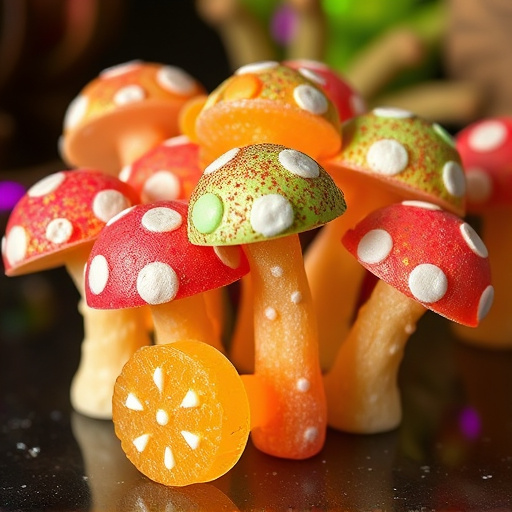
Unraveling the science behind magic mushroom gummies reveals a fascinating interplay between ancient healing practices and modern neuroscience. Magic mushrooms, or psilocybin-containing fungi, have been used for centuries in ceremonial settings for their perceived mental health benefits. In recent years, scientific research has begun to decipher how these compounds interact with our bodies, particularly focusing on the gut-brain connection.
The gut is often referred to as the “second brain” due to its complex neural network that communicates bidirectionally with the brain. Magic mushroom gummies, by delivering psilocybin in a palatable form like gummies, offer a novel way to explore this connection. Studies suggest that psilocybin can affect neurotransmitters and neurohormones, leading to altered states of consciousness and potential therapeutic effects on conditions like depression, anxiety, and PTSD. Understanding the gut-brain axis is key to unlocking the full potential of magic mushroom gummies as a promising alternative therapy.
The Gut-Brain Connection: A Deep Dive
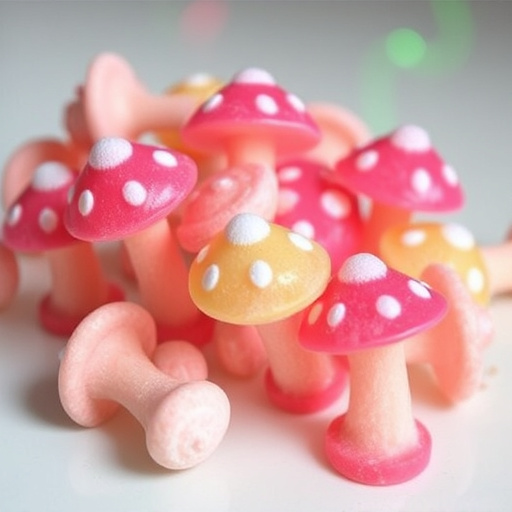
The gut-brain connection is a fascinating aspect of neuroscience that has gained significant attention in recent years, especially within the context of alternative treatments and psychonautic exploration. Magic mushroom gummies, derived from psilocybin mushrooms, offer more than just a psychedelic experience; they can also provide insights into this intricate relationship between our gastrointestinal system and central nervous system.
The gut is often referred to as our second brain due to its high concentration of nerve cells, known as the enteric nervous system. This neural network communicates bidirectionally with the brain, influencing mood, cognitive function, and even perceptions. When consumed, magic mushroom gummies introduce psilocybin, a compound that interacts with serotonin receptors in the brain, but it also stimulates the release of gut hormones and promotes beneficial bacteria growth in the intestines. This interaction can lead to enhanced emotional awareness, creativity, and even profound insights—effects that may be linked to the simultaneous modulation of both the gut and brain.
Potential Benefits and Considerations for Consumption
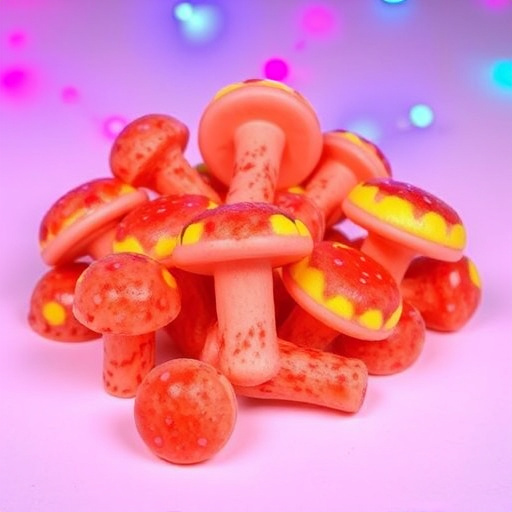
The potential benefits of magic mushroom gummies, centered around their active compound psilocybin, are a growing area of interest in both recreational and therapeutic contexts. Studies have explored their positive impacts on mental health, including alleviating symptoms of depression, anxiety, and PTSD by facilitating a deeper connection between the gut and brain—a bi-directional relationship known as the gut-brain axis. Psilocybin has been shown to promote neuroplasticity and boost the production of neurotransmitters like serotonin, which plays a key role in mood regulation.
However, considerations for consumption are paramount. Magic mushroom gummies, though offering potential therapeutic advantages, remain largely unregulated, posing challenges in terms of dosage accuracy and purity. Individual responses can vary greatly due to factors like tolerance, set (mental state), and setting (environment). It’s crucial to consult with a healthcare provider before attempting any psilocybin-based therapy. Additionally, ongoing research is needed to fully understand the long-term effects and optimal dosing protocols for safety and efficacy.
In conclusion, while lab-tested magic mushroom gummies present an intriguing option for exploring potential therapeutic benefits, particularly through the lens of the gut-brain connection, it’s crucial to approach their consumption with caution. Further research is needed to fully understand their effects and establish safe dosage guidelines. Always prioritize evidence-based practices and consult healthcare professionals before incorporating any alternative remedies into your wellness routine.
